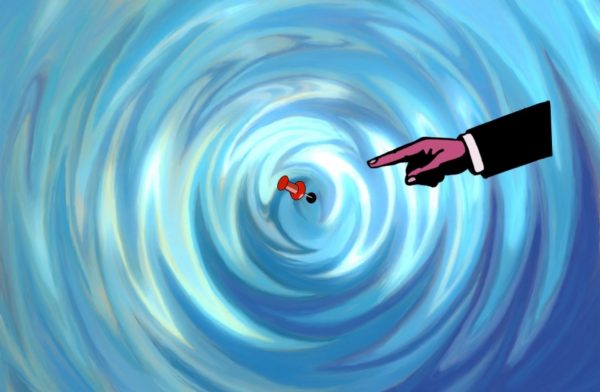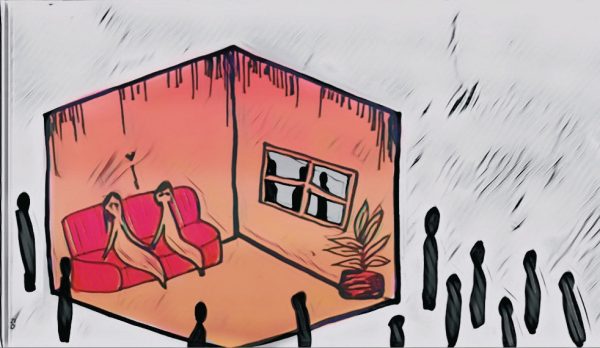Where is Justice?
Not having read Occidentalism: The West in the Eyes of its Enemies, I am not about to analyze Matthew Silverman’s critique of the book in his article “Greed is Good” (Vol.122, Issue 9). However, I would like to question the authenticity of the author’s assertion that greed is indeed good. The author craftily used ‘doublespeak,’ branding anybody who questions particular actions of the West into somebody who is ‘anti-Western’.
His article fails to address legitimate queries such as: Should multinational companies with economic interests abroad be excused from treating fellow humans with justice and respect? Are sweatshops righteous? Is it just for some executives to make upwards of ten times the wages of their employees? Are employees not entitled to basic health care and livable wages? Some of those same employees work and live in treacherous/deplorable conditions, barely earning enough money to get by. Do Western nations not bear any responsibility for their actions? Where does justice come into play?
Many proponents of the ideology the author promotes say, “Is not something better then nothing at all?” Of course, some wage is better than no wage, but because there may be a bad option or a worse option does not excuse one’s accountability to attempt to make things more equitable.
“Anti-Westerners are right to say that the West is greedy and materialistic. However, this is a compliment. Greed and materialism are actually good because these characteristics are the one moral truth that all humans seem to be able to live by because they bring the greatest happiness to the most.” What an astonishing claim! Greed and materiality are the only moral truths? Is greed that is not governed by law a breach of justice? Can truth be severed from justice? Of course not, but ignorantly equating greed with truth is a tricky way of having no regard for laws and reducing people to mere commodities.
Greed and materiality are found all over the world, not just in Western culture. This, however, does not justify the abuse of materiality (greed). More people suffer as a result of greed than people who benefit from indulging in excess materialism. Most of this world is comprised of people struggling for basic staples of life (i.e., food, clean water, and shelter).
People live in a material world so it goes without saying that materiality is a part of life, as the author points out. “Material comforts are not trite nor are they sinful. Instead goods that people use and trade for represent the products of a global community’s trade and production.”
Are no lines to be drawn? Can materiality achieved at any cost not be connected to sin? There is no mention of greed’s limitations because after the author has equated greed with being the ‘one moral truth,’ he has placed greed above justice, a foolish miscalculation. The author also ignores the fact that materiality does not automatically bring happiness to the most. No doubt, materiality can help lead to happiness, but by no means is happiness guaranteed. Such thought is eerily reminiscent of the fascist/hyper-nationalist thought of the first half of the twentieth century (WWI and WWII). These ideas in their most radical sense also condone institutions such as slavery.
The author fails to recognize any side effects modernization may have on the environment. Such thought does not account for an environmental impact on future generations. Economic systems based upon greed that are rationalized as the ‘only true morality,’ rather than emphasizing an order of responsibility and justice based on urgency for all men, are gross distortions of words in order to substantiate the current ideology the article seems to be embracing.
The author goes on to state the obvious about religion: There is such a thing as religion in the West, outside of greed and materialism, that does indeed live behind closed doors. The author correctly points out that one of the best qualities of the West is the importance the West places on protecting religious freedom. But what happens when those doors are smashed down and religion becomes part of the public realm? When politics are influenced by religion (i.e., the current abortion debate in our nation)? When political actions are determined and then defended because a higher power has ‘deemed’ them acceptable? “Modernization is religion because modernity in capitalist societies gives all people the opportunity to participate in a global community where everyone shares a religion of productivity and everyone in the global community experiences the benefits.” But was America a modern-capitalist society in 1960? Was segregation still occurring in the South at this time? Did all people have the opportunity to participate? Modernization may look good in theory, but realistically it is riddled with problems and will never be effectively implemented unless it is governed by just laws.
“Anti-Western critics make arguments for spirituality, community, greatness and modesty, but in reality what they want is to impose their own system on others.” Is this argument not attempting imposition of the Western system on others? Hegemonic enforcement of a system is what is propagated throughout this article. Failing to find a place for justice in the ‘Greed is Good’ system will only result in an eventual breakdown.


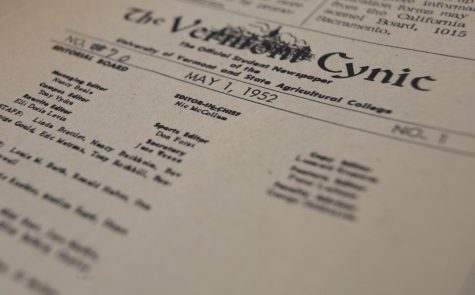

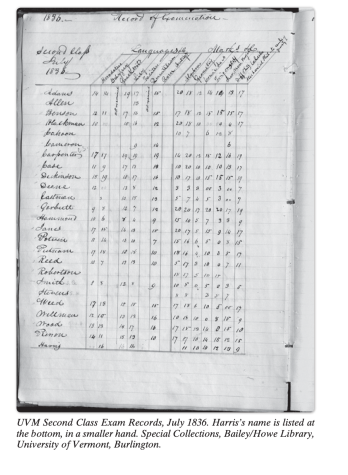
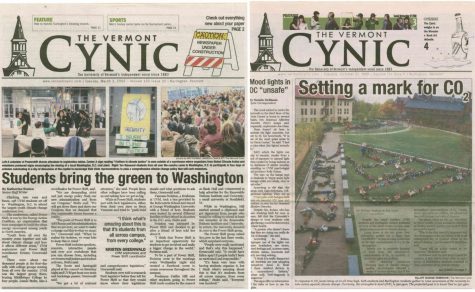

![Can’t buy me [self] love](https://vtcynic.com/wp-content/uploads/2024/04/self-care-FINAL-600x398.jpg)

